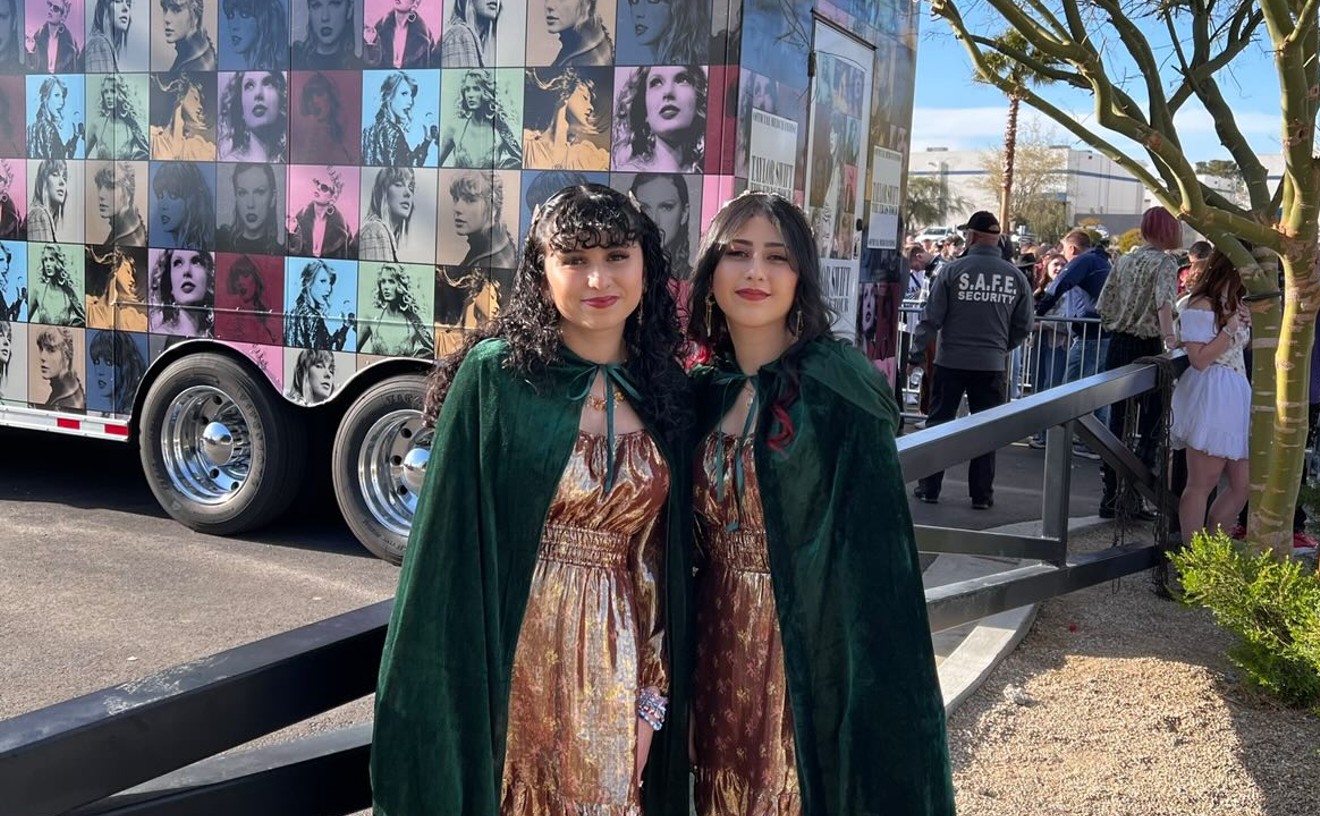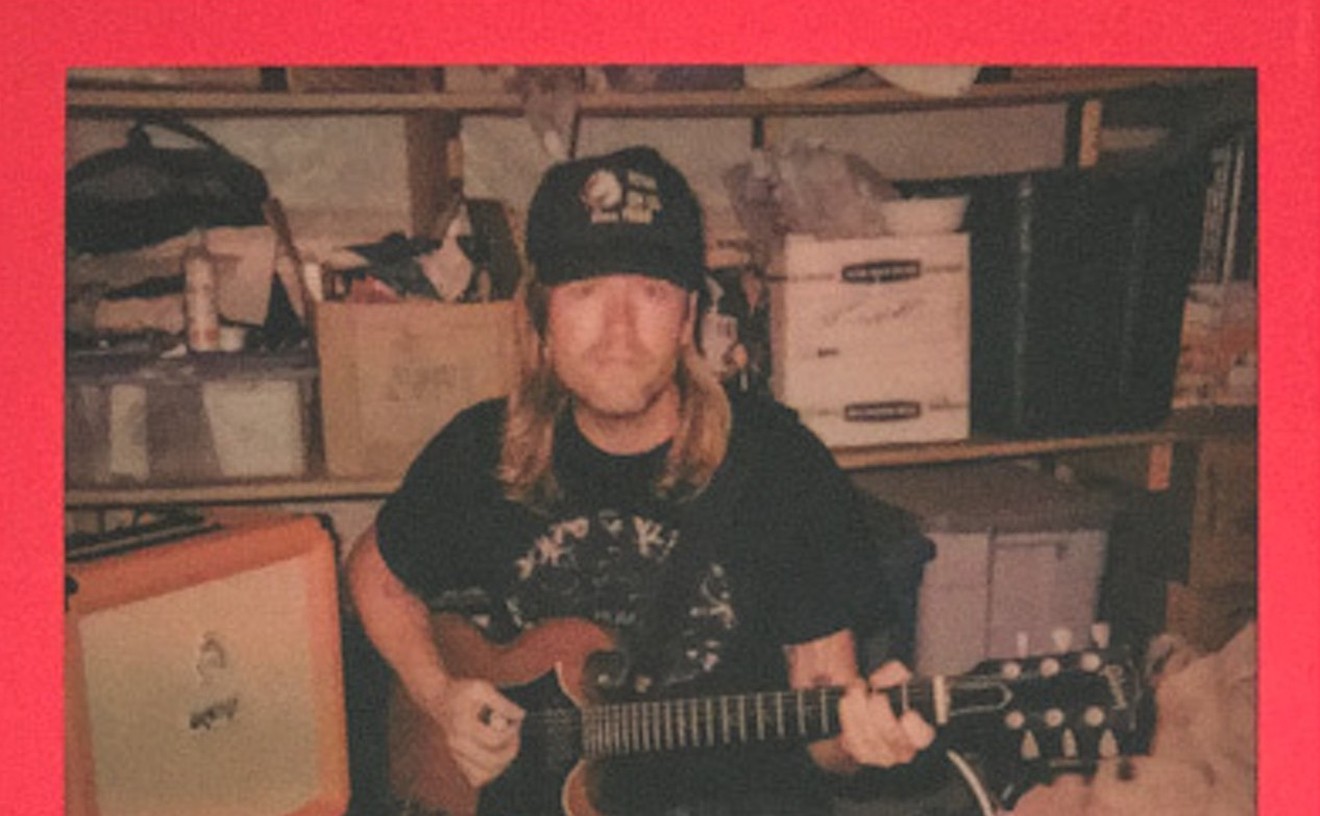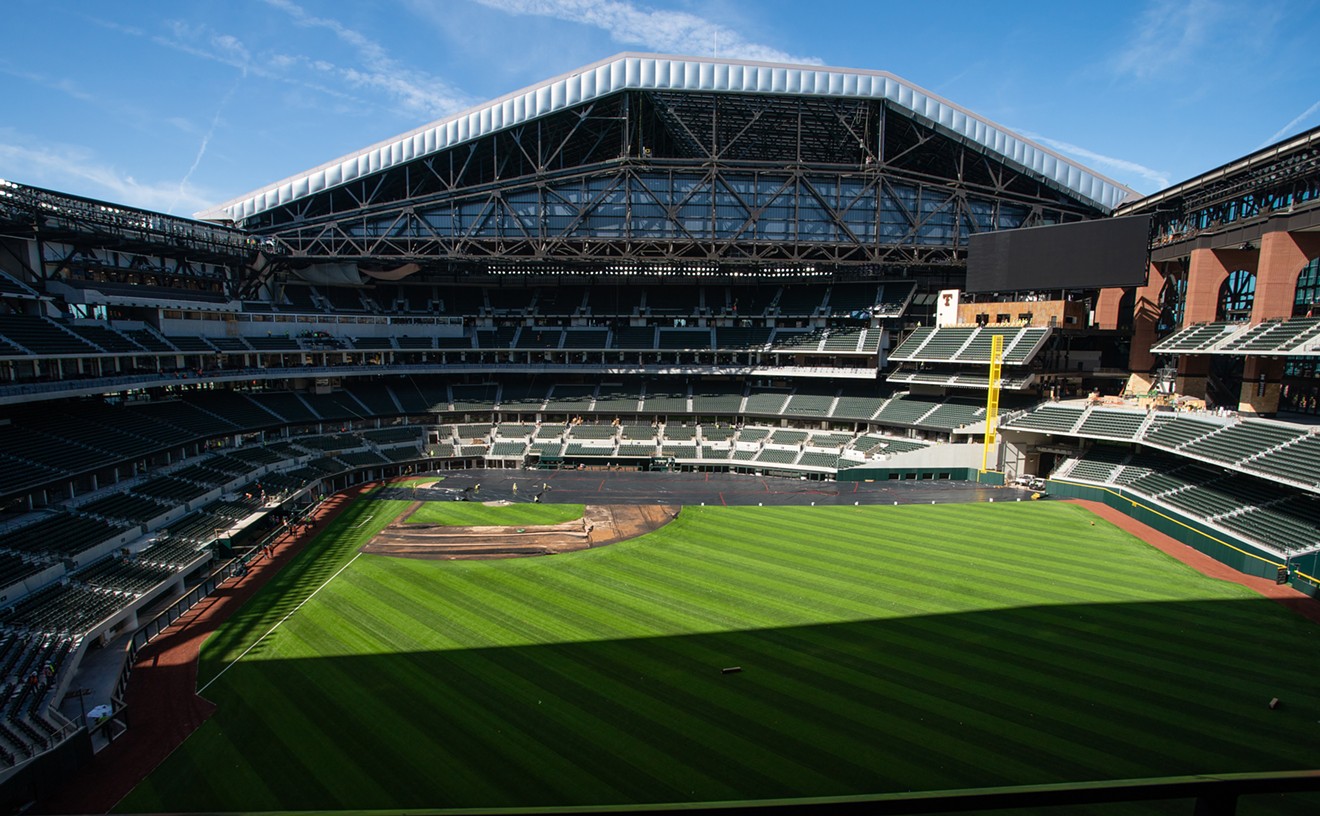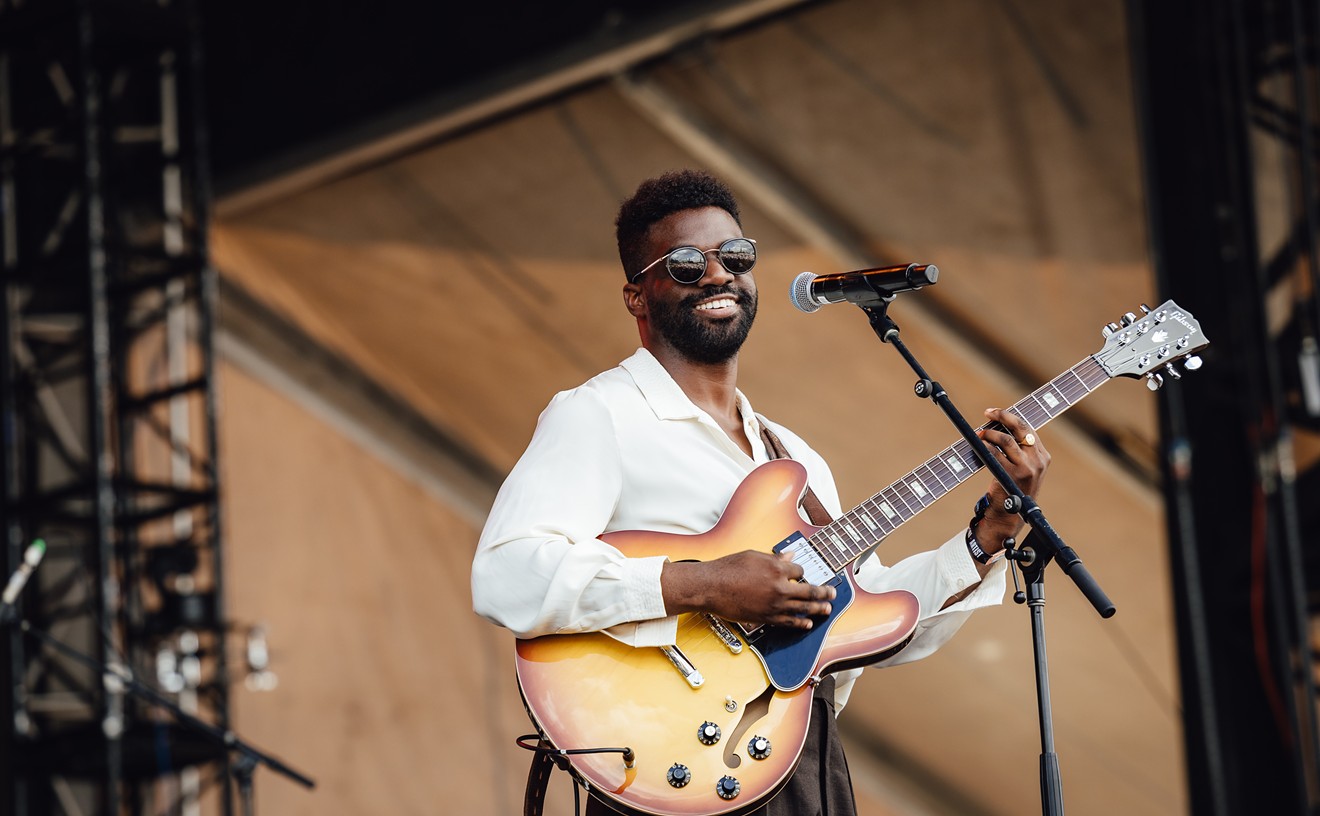Formerly the domain of well-meaning but tragically un-hip Stephen Curtis Chapman and friends, Christian music has made a serious bid for the mainstream in the past few years. Bands like Switchfoot get MTV airtime thanks to the success of Jesus-friendly rock-rappers P.O.D. and everyone's favorite former Creed front man, Scott Stapp. But behold what lies beneath the radio-friendly Christian radar: a wave of metal, nu-metal, old-school metal, metal-core, hardcore, emo-core, insert-your-favorite-core-here bands that make it their business to rock small cities and suburbs full of kids frustrated with the traditional youth group. Dallas-Fort Worth is one of the places where they thrive, filling alcohol-free, all-ages venues with kids desperate for a non-nerdy alternative to weekend nights filled with drinking, drugs and premarital sex.
Big-name local stages like The Door have two locations and draw national tours, but it's the underground, word-of-mouth places like Dreamworld, Club 412 and brave, small churches throughout the area that produce a concert-going experience as spiritually powerful as it is loud.
Born-again Deep Ellum guru Russell David Hobbs opened his vision for a Christian-backed club with The Door Dallas in 1998 and its Fort Worth branch across from Billy Bob's two years later. But chances are you've already heard of his places, and perhaps have even seen a Door show, enjoying one of the few sound systems in town that makes hardcore music sound like, well, music. Other Christians saw the same need as Hobbs around that time, realizing what he did: "You can wear what you want; you can have friends and have fun and stay out late at night and still be a Christian."
Club 412, struggling to find a home and reclaim the (relatively) massive crowds it once drew at its Fort Worth shopping-center location on Southwest Boulevard, now operates out of the sanctuary of Christ Fellowship Baptist Church in Arlington. What started out as a Christian coffee shop in 1998 turned into a weekly packed house as kids arrived en masse to hear faith-based bands like Embodyment and Travail before they were big enough for countrywide tours.
"I was amazed that this loud screaming stuff could bring anyone into church," says Rusty Ivey, who's been with 412 since its first year in 1998, starting out as a curious neighbor, then working security and eventually becoming a co-manager. It didn't take long for him to realize that what seemed bizarre--getting a spiritual experience from rocking out to the growl of faith-centered lyrics--was working.
At 412 and other clubs, most of the staff are young Christian adults. Concert-goers can find spiritual mentors working the door or concession stand and not feel like they're talking to a stuffy minister or parent. Providing that kind of counseling is another primary function of the clubs. They also allow kids to bring their non-Christian friends to a concert without feeling embarrassed about an overly religious atmosphere. Ivey says that those friends-of-friends, once they build up a rapport, can make up some of their most significant conversions to the faith.
Somehow, their message-via-heavy metal works, even in a sanctuary. The room's eerie lighting, huge projector screens playing cartoons or recent DVD releases on mute and the massive cross suspended above the altar-turned-stage make the whole experience seem catacomb-like and secretive. Perfect for 30 kids packed around the band, their hands raised and occasionally swaying with the beat.
The scene is different now. Back then, you'd be likely to see a lead singer who also doubled as a worship leader, guiding the audience in a prayer or perhaps invoking them to form a nice, friendly mosh pit for Jesus. Today, bands rely more on the personal faith of the audience members to fuel their shows.
Over at Dreamworld, Society's Finest is headlining. There's no trace of the onstage power chord-backed testimony-cum-group-prayer that was so prevalent when most of these clubs opened their doors. Then, it was mostly JNCO-clad skater boys clamoring for that comforting spiel: Jesus can and will save your soul, metal kid, because he's saved mine; let me share my story with you now. Instead, the audience is treated to a brief encouragement of morality.
"This song is about premarital sex and how you shouldn't have it." Cue searing guitars.
Still, what's happening is as much worship as it is a concert. The parallels are there--rapt congregation, fearless front man at the helm. It's almost like what might happen if white suburban teenagers took over an energetic, Southern Baptist black church. They clap. They sing. They shout encouragement during an especially rocking drum solo.
John Tunnell, owner and operator of Dreamworld, is more like a spastic 9-year-old with a penchant for the word "stupid" than a Bible-toting former youth minister. He opened the club in 2000, two years after The Door Dallas had its first show. Tunnell walks a fine line. He wants to bring more teens to Christianity, but he has to be careful not to scare them away with talk of fire and brimstone.
"On the surface, religion plays no part in the club," Tunnell says. Beneath that surface, he says, is where the message seeps in. He speaks in parables and frequently references Bible verses about fig trees and bearing good fruit, all the while stamping concert-goers' hands in red ink that reads, "im a idiot" (sic).
The man knows what the kids are coming for: a nonthreatening venue run by nonjudgmental adults who will allow them to be their nonmainstream selves for a reasonable price.
"I don't want to go somewhere where [religion] is shoved down my throat," says Thomas Rodgers, a Colleyville 18-year-old perched atop some kind of sedan, surrounded by a group of kids too unbelievably hip to reside in a city with such a small ratio of Urban Outfitters to warm bodies.
There is, of course, the obvious question.
"So, are y'all Christians or what?"
A unanimous "yeah" resounds. Open about their faith, obsessed with hardcore music and properly disdainful of poseurs, Thomas and many of his friends are in one band or another--even the girls. The beautiful blonde with the Gwen Stefani eye shadow gets riled up just thinking about chicks who come to shows only to pick up guys. Guys who should belong to the real hardcore females, who are few in number but mighty in spirit. They are a kind of sub-subculture, connected by a Friendster-esque web of mutual ex-boyfriends and bandmates.
"Girls are like, 'Oooh, can I have your drumstick?' or something. And they don't even care about the music," says Converse-wearing 15-year-old Amanda Kersey after a Society's Finest headliner at The Door Fort Worth. Romantic stresses aside, the pressures of publicly living a Christian lifestyle can also create tensions among bands, audiences and even venues.
"You're always in the public eye," says faux-hawked Josh Ashworth, Society's lead singer. Because so many Christians disagree on issues from smoking to drinking to cursing to premarital living arrangements, bands are starting to shy away from the "Christian band" label.
"We try to say we're a band made up of Christians, not a Christian band," Ashworth says. His music is about the usual business--love and heartache--but also about overcoming a past of less-than-Christian behavior.
"People got tired of being stoned and being called hypocrites when they walked offstage," he says of the recent trend of fewer evangelical bands.
Russell Hobbs even chooses his words carefully when he describes The Door as a Christian club, because unlike Club 412 and church venues, his stage is available to openly non-Christian bands.
"Did Jesus have a club? I don't know what a Christian club would look like. Is The Door a club run by Christians? Yes. Does that mean we should also play with the devil's kids? Yes."
Whatever the performance space, both promoters and youth ministers have wised up to the market demand for edgier Christian entertainment. The Door remains firmly rooted in Deep Ellum, entertaining bands like Dashboard Confessional and Taking Back Sunday, while places like Club 412 work hard to hold down a location.
"We'll jump from place to place picking up little pieces of the puzzle. We'll go where God leads us," Rusty Ivey says.
Back at Dreamworld, the Saturday-night show is over and the warehouse doors are flung open by a throng of kids intent on making curfew. Some make serpentine sprints to minivans waiting at the entrance, their heads low and faces down to avoid the embarrassment that comes with lacking a drivers license.
They may or may not go to church the next morning--it doesn't matter. They've already gotten their spiritual kick for the week from a renovated warehouse and a few oversized Marshall amps. It sure beats Sunday school.










